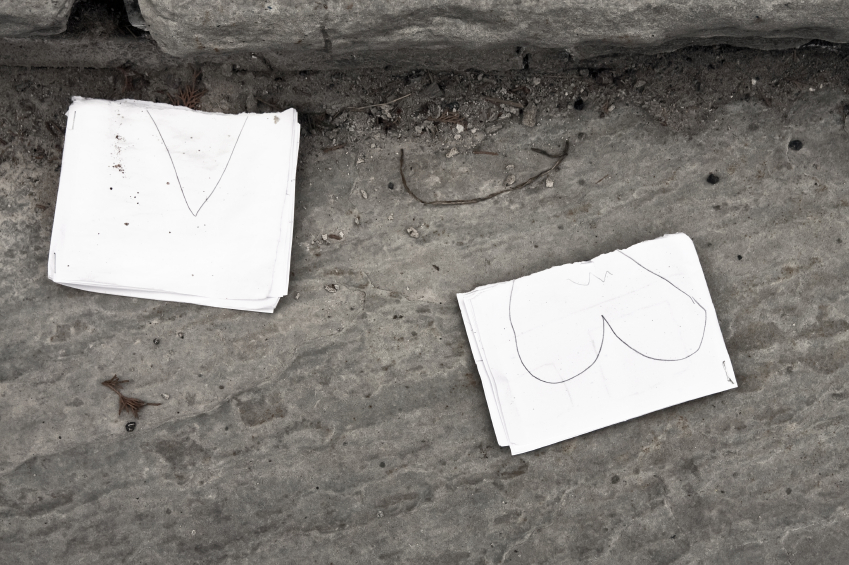Of course tonight. Of course now. After two years of seeing him in showrooms and resigned to occupational silence, pressed up against a wall in a dress I do not own. After two years of dressing up, walking out, hoping to run into him so that I could have a voice when I was free to. Now is when I see him, when I’m storming away from the bathroom with a white shirt covered in red wine and the giant word LOVE. Of course tonight. Of course now.
My arms reach out almost spastically, seeing him first, catching his eye, grabbing him before my brain can actually debate, process, withhold. I have dreamed of this moment often, most recently of seeing him in a dark club, huddled in the corner. I walk up to him and punch him in the face. I do not say a word. Someone drags me away and I do not care. I watch people fuss over him while he cups his jaw with one tattooed hand, new blue ink eating up spare flesh, until, eventually, I am on the street, alone and satisfied.
Vengeance is relegated to dreams. My hands meet his back.
It is a very fine jacket. Its expense is conveyed even through my fingertips’ brief encounter. It is firm, textured, well-cut. I pull my arms away and am left then to speak. My face forces itself into a friendly shape.
“Hey! How are you?”
And then I fumble for words, talk in a high-pitched, rambling voice. It is a nothing of a conversation, one I cannot process over the blinding white blank space my brain has become, emergency sirens blaring silently in between my ears. Eva approaches and I am saved. I grasp for something intangible and mutually shared.
“You know Camden? The jewelry line. You buy them. This,” I motion to Eva, standing there with her perfect hair and her skintight dress, “is Camden. This is Eva Camden.”
“Oh,” he says, “hello.” And then they shake hands.
“I don’t want to interrupt your whatever,” I say, and I think he says “It’s alright” or “You’re not interrupting,” but all I hear is the cavernous empty white space of my brain.
And then it is over.
And I am sitting in my chair.
And he is sitting in his chair.
And I am okay.
Until I am not.
The adrenaline rushes from unseen depths towards the surface of my skin, grabbing my bones and shaking me hard, shuddering against the ribs and reaching towards my neck where it begins to strangle my speech. “I’m sorry, I’m sorry,” I say, and I grab my bag and my phone and I walk quickly, blindly towards the back of the lobby, past the bar, the bathroom, the galley-way kitchen. PUSH and I am out on Lafayette Street, standing on the street corner, about to burst into tears.
But I don’t.
I stay.
And I walk back inside, and I sit in my chair that is across from his chair.
An hour later I watch him pull a card out of his wallet, pay the bill for him and a blonde woman. He grabs his coat — that fine coat with the fingertip feel — and pulls it over his shoulders. I do not look at him. My hand is somewhere around my left cheek, listening to a story intently but falsely. And then he leaves. I watch him walk past the indoor plants and the doormen and the magazine rack until he is gone. I have seen this many times – him walking away from me without a word. A back and the heels of a nice pair of shoes.

















